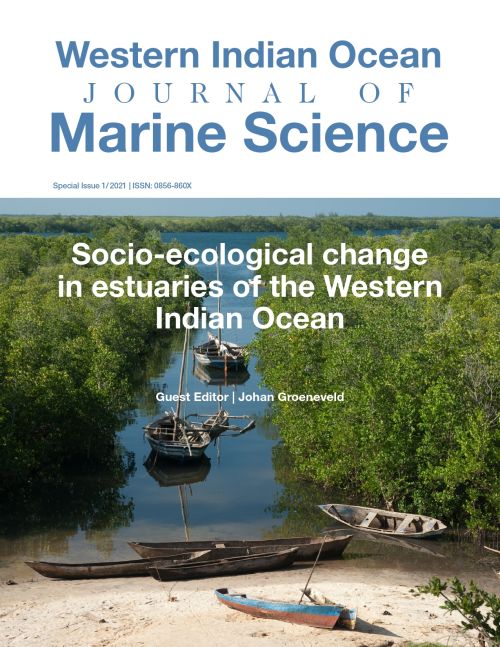Main Article Content
Small-scale fisheries of the Bons Sinais Estuary in Mozambique with emphasis on utilization of unselective gear
Abstract
Small-scale fisheries in estuaries of the Western Indian Ocean form a key component of socio-ecological systems (SES) and food security, yet they remain poorly understood. This study describes the estuarine fisheries of the Bons Sinais Estuary in Mozambique based on fisheries and biological data collected by monitors between 2007 and 2016. Multiple gears were used, including beach seines (78 % of sampled fish), chicocota nets (12 %), gillnets (5 %), and hook and line (4 %). Landings were dominated by small pelagic fishes (Engraulidae 29 %, Pristigasteridae 16 %, Clupeidae 11 %) and prawns (Penaeidae 29 %). Monthly averaged fishing effort, landings and catch per unit effort of beach seine and chicocota nets peaked during the dry season, in April and July to October. The proportion of penaeid prawns in landings increased moderately at the end of the wet season, between January and March. The species and size composition selected by beach seine and chicocota nets overlapped, with chicocota nets also retaining marginally smaller individuals. Both gears exploited low trophic level species near the base of the food web, with low trophic values of 2.8 for chicocota and 3.0 for beach seine nets. The small-scale fishery in the Bons Sinais Estuary followed a ‘balanced harvest’ approach in which unselective fishing gear is used to exploit a mix of species and sizes proportional to natural productivity and relative abundance.




